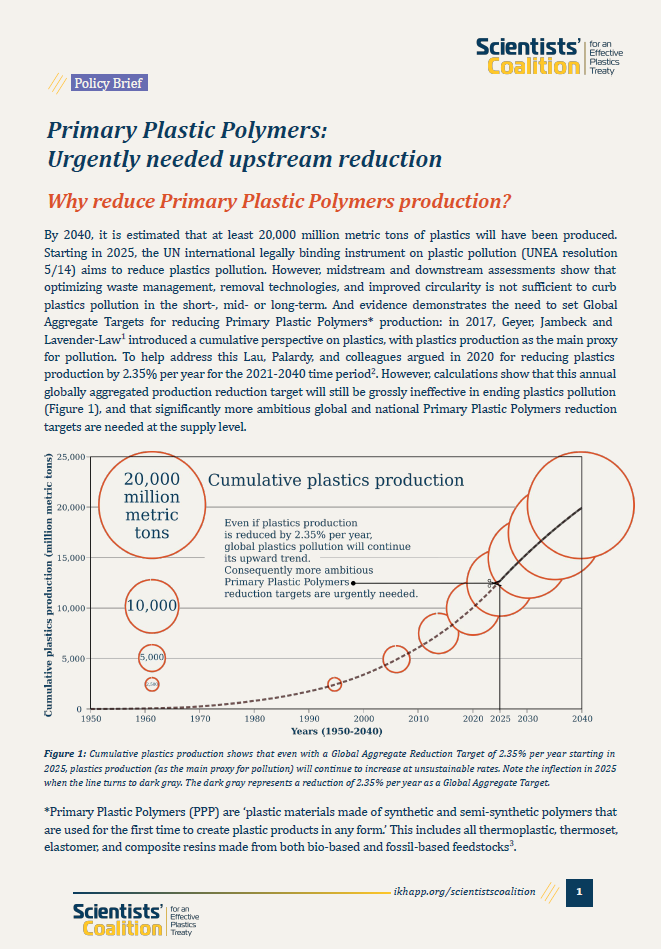
© Cambridge University Press 2024
A Circular Plastic Economy Should Account for all Societal Costs
- Publication
- Citation
Syberg K, Gündoğdu S, Olsen T, et al. A circular plastic economy should account for all societal costs. Cambridge Prisms: Plastics. Published online 2025:1-10. doi:10.1017/plc.2025.10019
To enable a genuine shift toward a circular plastic economy, the UN plastics treaty must confront two critical structural barriers: fossil fuel and plastic production subsidies, and the failure to internalize the true societal and environmental costs of plastic. Without addressing these root causes, efforts to end plastic pollution risk falling short, the authors of this article argue. Among them Ecologic Institute's Doris Knoblauch.
Subsidies keep primary plastics artificially cheap
The article highlights how current global policies largely fail to tackle the systemic economic conditions underpinning the linear plastic economy. While numerous initiatives focus on waste management and recycling, they often ignore the artificially low cost of primary plastics – a result of extensive subsidies and the externalization of health and environmental damages.
Plastic is kept "cheap" through direct and indirect subsidies, with fossil fuel support alone surpassing $1 trillion globally in 2022. At the same time, mounting evidence points to massive unaccounted costs: from marine environmental damage (estimated at $2.5 trillion/year) to plastic-related health impacts (e.g. $250 billion in U.S. health costs due to endocrine disruptors in 2018).
The authors argue that these distortions block innovation, entrench the dominance of single-use plastics, and hinder the scale-up of circular business models. Transitioning to a more regenerative and sustainable plastic system therefore requires bold policy measures that reshape market incentives and dismantle harmful subsidies.
Policy Recommendations for the UN Plastics Treaty
- Phase out fossil fuel and plastic production subsidies that artificially lower primary plastic prices.
- Introduce a polymer production fee, calibrated to cover the real societal and environmental externalities.
- Mandate a global phase-out of single-use plastics (SUPs), supported by reporting and review mechanisms.
These actions are presented as essential steps to “destabilize” the existing socio-technical regime and build a new foundation for a circular plastic economy.




